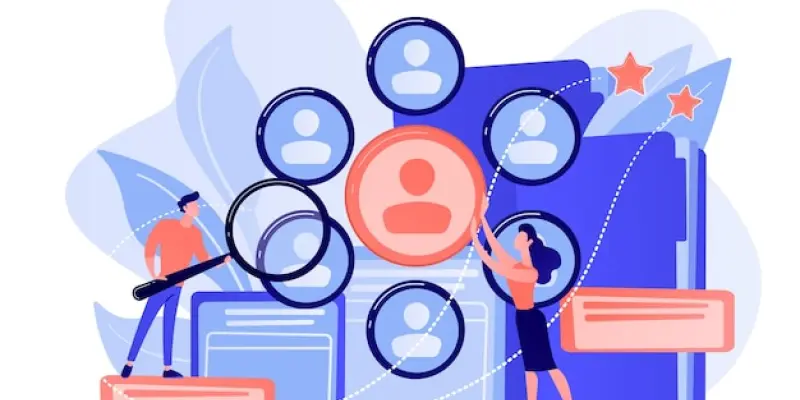The rapid evolution of artificial intelligence (AI) technologies has brought a transformative change to the field of Human Capital Management (HCM), particularly in SAP systems. From the outdated paper-based HR systems of the past to today’s sophisticated digital solutions, AI and machine learning have introduced predictive analytics, automation, and data-driven decision-making, significantly enhancing the efficiency and effectiveness of HR functions. This article will explore the transformative impact AI is having on SAP HCM.
AI-Powered Recruitment: Enhancing Efficiency and Fairness
AI-powered recruitment systems are revolutionizing the way organizations approach hiring by introducing unprecedented levels of efficiency and fairness. These systems automate candidate screening processes, optimize job descriptions, and reduce biases, making hiring both faster and more equitable. AI algorithms, boasting up to 85% accuracy in matching candidates with job roles, reduce the time taken to hire by as much as 44%. Such efficiency not only accelerates the hiring process but also ensures that top candidates are promptly identified and onboarded.
Moreover, advanced natural language processing technologies refine job postings to attract the right talent. By maintaining consistent evaluations across all candidates, AI helps in minimizing biases that are often inherent in human screening processes. As a result, organizations benefit from a more diverse and inclusive workforce, enhancing overall performance and innovation.
Predictive analytics within SAP HCM platforms also provide valuable insights into employee retention, performance, and career advancement. AI models, with prediction accuracies exceeding 90%, equip HR professionals with tools to implement proactive retention strategies. These insights enable organizations to predict which employees are at risk of leaving and take necessary steps to retain them. Performance analytics further highlight competency gaps and tailor personalized development plans for employees. This alignment not only fosters employees’ career growth but also ensures their career paths are in sync with the company’s objectives.
Robotic Process Automation: Revolutionizing HR Administrative Tasks
Robotic Process Automation (RPA) is transforming HR administrative functions, leading to significant improvements in accuracy and efficiency. In payroll processing, for instance, RPA achieves an impressive 99% accuracy rate, cutting down process times by an astounding 65%. RPA leverages Optical Character Recognition (OCR) for handling documents, with a 95% accuracy rate, reducing manual errors and accelerating workflows. This level of automation allows HR professionals to shift their focus from mundane administrative tasks to more strategic initiatives, thereby enhancing overall organizational productivity.
One of the most notable benefits of RPA in HR is its ability to streamline and expedite tasks that were previously time-consuming and prone to human error. For example, the automation of benefits administration, employee onboarding, and offboarding processes significantly reduces the time and resources required to manage these functions. Additionally, by automating routine tasks, RPA frees up HR professionals to concentrate on strategic areas such as talent management, employee engagement, and organizational development.
The positive impact of RPA in HR is also evident in compliance management. RPA systems ensure that all HR processes adhere to regulatory requirements, minimizing compliance risks. This is achieved through continuous monitoring and automated reporting, providing HR departments with real-time insights into compliance status. Furthermore, RPA’s ability to handle high volumes of data ensures that HR records are always up-to-date and accurate, eliminating discrepancies and errors that can result in costly penalties.
AI-Enhanced Employee Self-Service Portals: Improving Engagement
Self-service portals enhanced by AI have revolutionized employee engagement by providing quick and efficient solutions to routine HR queries. These portals resolve up to 70% of standard HR inquiries without requiring human intervention, enhancing response times by 60%. The incorporation of real-time analytics in these portals further improves service delivery and supports continuous enhancement. As a result, employees experience better satisfaction and a stronger connection to the organization, contributing to a more engaged and motivated workforce.
AI-enhanced self-service portals are designed to empower employees by giving them direct access to the information they need. For instance, employees can easily access payroll information, benefits details, and leave balances, reducing the need for HR support. This autonomy not only saves time for both employees and HR staff but also fosters a sense of independence and responsibility among employees. Furthermore, real-time analytics provide valuable feedback on the performance of these portals, enabling HR departments to identify areas for improvement and implement necessary changes promptly.
Beyond addressing routine queries, AI-enhanced self-service portals also play a significant role in employee development. These portals can offer personalized training recommendations based on individual performance data and career aspirations. By analyzing employee skills and competencies, AI can suggest relevant training programs and development opportunities, helping employees to continuously grow and advance in their careers. This targeted approach to employee development ensures that the workforce remains highly skilled and adaptable to changing business needs.
Ethical Considerations and Future Developments
As AI transforms Human Capital Management (HCM), particularly within SAP systems, it’s essential to address ethical considerations and be mindful of future developments. From the outdated paper-heavy HR processes of the past to advanced digital solutions today, AI has revolutionized predictive analytics, automation, and data-driven decision-making in HR tasks. These technologies automate repetitive tasks, predict employee turnover, and streamline recruitment processes, allowing HR professionals to focus on more strategic activities. Additionally, AI-driven chatbots can handle routine employee inquiries, freeing up HR time for more complex issues. Predictive analytics can forecast future workforce trends, aiding managers in making informed decisions about hiring, training, and resource allocation. This ongoing transformation ensures that HR departments remain agile, data-centric, and future-ready.

